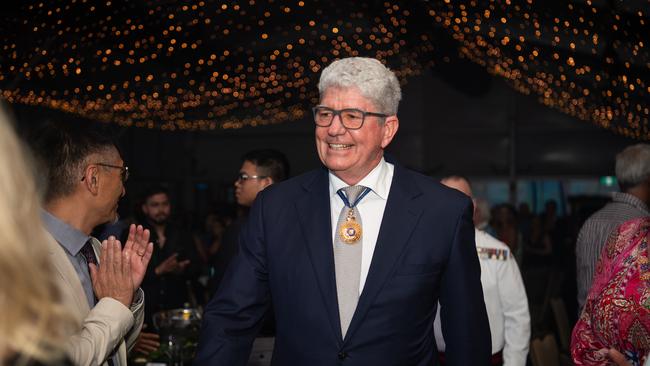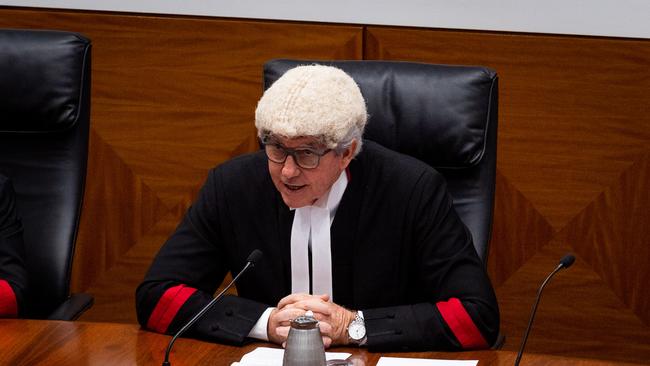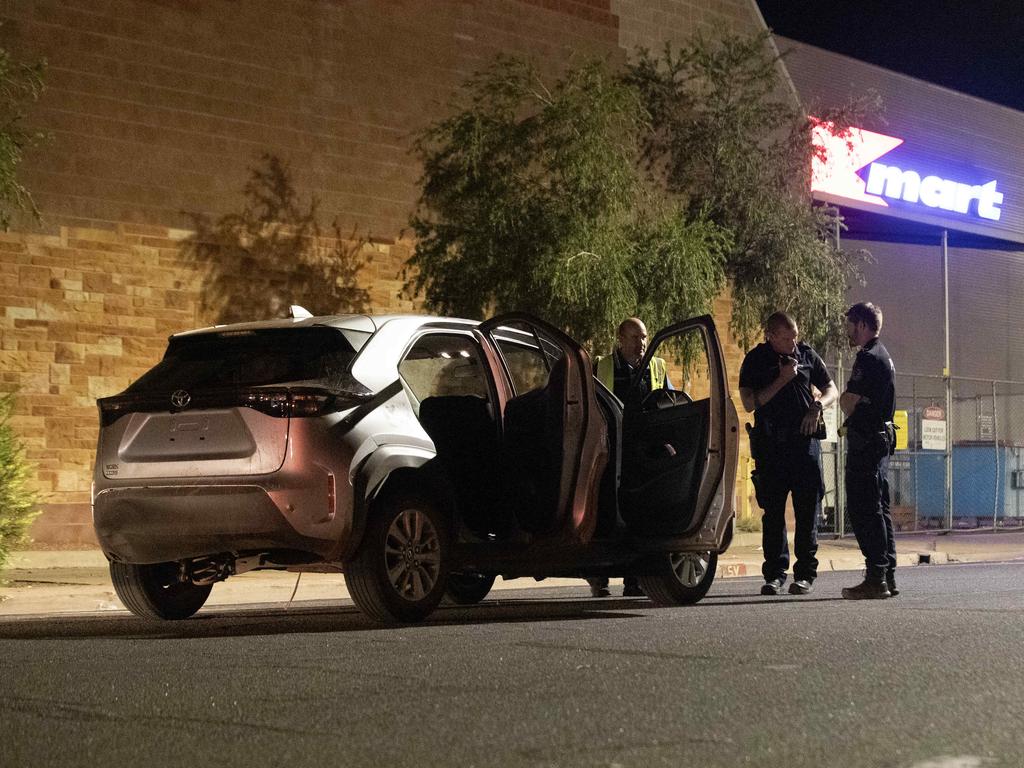‘Challenging time’ for Northern Territory courts: Chief Justice Michael Grant
The NT Chief Justice has blamed increased policing in the Territory for skyrocketing incarceration figures, saying officers were taking a ‘zero tolerance’ approach to crime under the new Country Liberal government.

The NT Chief Justice has blamed increased policing in the Territory for skyrocketing incarceration figures, saying officers are taking a “zero-tolerance” approach to crime under the new Country Liberal government, following a spate of violent crime in the nation’s Top End.
In an extraordinary intervention, Chief Justice Michael Grant declared judges were ill-equipped to expeditiously address the growing strain on the prison system, asserting there was “nothing” the courts could do to alleviate the situation.
The zero-tolerance stance was a marked shift away from careful discretion to “apprehend, caution and release” alleged offenders in the past, he said, due to the new political imperatives of the recently elected Finocchiaro government.
“This is the new political and operational environment, and there is nothing the courts or the legal profession can do under present conditions to ameliorate the consequences of that environment in terms of workload or remand numbers,” Justice Grant said.
The Chief Justice’s opening of the legal term address, obtained exclusively by The Australian, comes amid “challenging times” for the Territory’s justice system, in which there are four times more people on remand in the Local Court than there were four years ago.

It also follows a serious escalation in the crime crisis that has long gripped the area, with South Australian police deployed to the region to reduce offending primarily in Alice Springs.
In recent months, police charged a man with breaking into a woman’s home and raping her while she slept, despite the man being on a good behaviour bond at the time.
In another incident, police arrested two teenage boys for aggravated robbery after they allegedly demanded alcohol from a 57-year-old man at his home, threatening him with a baseball bat and a tomahawk.
Separately, two boys were arrested after breaking into an Alice Springs home and striking a woman with a detachable metal freezer handle so hard it rebounded, hitting a two-month-old baby and causing a brain bleed and fractured skull.
Earlier this week, one of the boys was granted bail to attend an “on country” funeral on an approximately $7000 taxpayer-funded aircraft, only to flee custody.
Justice Grant said there had been a significant increase in apprehensions, arrests and charges due to “a shift in operational priorities and practices by police, driven largely by the new political imperative”.
“Because of the increased public concern about law-and-order issues, police resources have been swung markedly towards preventing and detecting street and property crime,” he said.
“That has included, for a short period at least, importing additional police officers from South Australia. The simple fact of the matter is that with more police dedicated to particular enforcement tasks there will be more arrests.”
Justice Grant poured water over suggestions that changes to bail laws or dropping the age of criminal responsibility – two controversial policies enacted since Lia Finocchiaro became Chief Minister – had had a material impact on the number of people imprisoned.

“The reality is that regardless whether the presumption is for or against bail, the court simply takes into consideration the matters set out in s24 of the Bail Act to determine whether bail should or should not be granted. That is a largely onus-neutral undertaking,” he said.
“Similarly, whatever the policy merits may be in relation to matters such as increasing or decreasing the age of criminal responsibility for youths, the recent increase in remand numbers and criminal work cannot be attributed in any material way to legislative amendment in those fields.”
Justice Grant said he was “very pleased” to learn the NT government “state publicly that there had been a lack of investment in the courts”.
“That included an express recognition that ‘for every dollar invested in policing, at least $1.50 should be directed towards the justice system’,” he said.
“It remains to be seen whether Treasury and the cabinet will support that view. The Attorney-General has also been receptive and supportive in relation to temporary additional judicial resourcing. As part of the additional resources provided by the Attorney-General, justices Alan Blow and Lex Lasry have been appointed as Acting Justices of the Supreme Court.”
Justice Grant said he was pleased legal aid and prosecution agencies had received a temporary injection in funding, but said they “will require recurrent funding if the political and operational environment remains unchanged”.






To join the conversation, please log in. Don't have an account? Register
Join the conversation, you are commenting as Logout